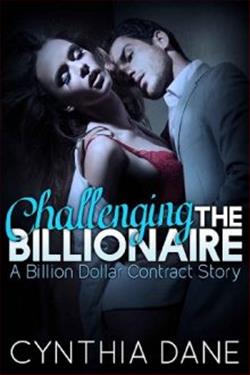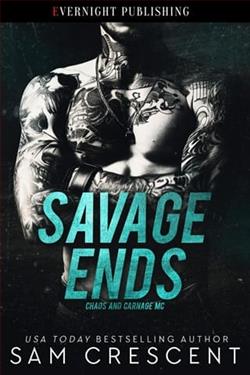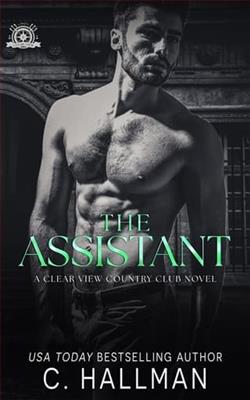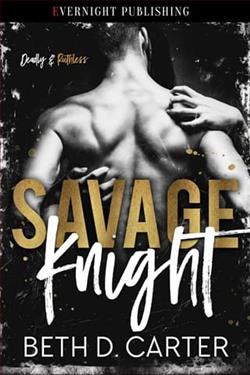Page 6 of Book People
My great-grandfather, who started the bookshop back in the thirties, was a Sebastian Blackwood and so am I, and I will not let his legacy vanish.
I try to concentrate on the stock ordering, but I can’t get the look on Kate Jones’s face as she left my shop out of my head. She was angry with me, but I also spotted determination in her grey eyes.
I don’t trust that determination. I don’t trust it an inch.
The bell above the door chimes and old Mr Parsons comes in. He’s a retired English professor with a fondness for nineteenth-century classics – he’s a particular fan of Proust – but I’m trying to introduce him to some modern authors. And when I say modern, I mean written after 1950. I got him to take a chance on Faulkner and Rushdie, so now I’m hoping he’ll like the Wyatt too.
The Bay at Midnightis set in an old pub in Ireland over the course of one night and it’s a modern classic. A rich tapestry of life in a village, redolent with history, fraught relationships, and a searing commentary on the loneliness of the human condition – at least, that’s what theTimesreview said.
I haven’t read it. I don’t need to read about villages and the loneliness of the human condition. I know all about that already. My reading tastes run to . . . other things, that I will never reveal to anyone.
Most especially not to Miss Kate Jones.
‘Blackwood,’ Mr Parsons says in greeting.
‘Mr Parsons,’ I say cordially back. ‘I have the Shakespeare edition you were after. It came in yesterday. TheCoriolanus.’
He’s a tall man in his mid-seventies, straight-backed and severe. A bit like my great-grandfather, which is why I bear hislittle moments of pettiness. At seventy-six, you’re allowed a few pettinesses.
‘Excellent,’ he says, rubbing his hands as he approaches the counter. ‘I’ve been looking forward to it.’
I pick up the Wyatt from the stack beside me and put it next to the Shakespeare. ‘You might like this,’ I say. ‘If you like Rushdie, you should give it a try.’
He looks suspiciously at the book and I tap the ‘Booker Prize Winner’ sticker displayed prominently on the front. ‘It won the Booker,’ I say, just in case he missed the sticker. ‘And the author will be coming to Blackwood Books for the festival next month.’
‘Oh, I see.’ Mr Parsons picks the book up and gives it a cursory study. ‘Will he be doing a reading?’
Mr Parsons does love a reading.
‘Yes,’ I say. ‘And a Q&A.’
Mr Parsons does love a Q&A.
‘Hmm.’ He puts the book down on top of the Shakespeare. ‘I’ll take it. But if the first two pages don’t grab me, I’m bringing it back.’
Mr Parsons also loves his two-page rule. I donotlove it, especially when he brings the books back to return them. But I don’t argue with him when he does, because he’s a loyal customer and the books he likes to buy are expensive.
‘Of course,’ I murmur, and ring the books up for him.
As he’s paying, Beverly from the Wychtree Arms comes in and, after Mr Parsons has gone, we go over the details for the poetry-reading event for the festival. That event in particular hasn’t sold as many tickets as I’d like, despite me managing to snag Augusta Heroine (a pseudonym, obviously) reading from her epic verse novelWhen We Were Heroes, a retelling ofThe Iliadfrom the point of view of a gender-swapped Odysseus.
Her readings are usually sell-outs in London, so I’m hoping there will be more takers. There’s still a few weeks to go, after all.
After Beverly leaves, we enter the long hours of the afternoon lull. I find myself yet again looking out of my front window and across the road to Portable Magic.
Miss Jones is adding a few more books to her window. The covers are brightly coloured, with cartoon people on them, and she arranges them picturesquely on the low table, next to a cup and saucer and a teapot.
A group of teenage girls assemble in front of the window, looking at the books, and Miss Jones straightens and gives them a smile. Then she picks up the books one by one and shows them to the girls, who grin and point and nod.
I stare balefully out at them, thinking what a ridiculous pantomime it is. And when the girls all pile excitedly into her shop, I’m incensed.
She treats her front window like it’s a department store display, like a toyshop. She thinks she’s the Pied Piper of Wychtree, luring all the children into her shop, and once they’re inside, they never come out again.
As the girls make their way in, Miss Jones straightens in the front window and throws a jaunty salute my way.
My jaw clenches tight, my teeth grind.
I turn back to my own shop and stare at it, trying to find my usual clear-eyed calm.















